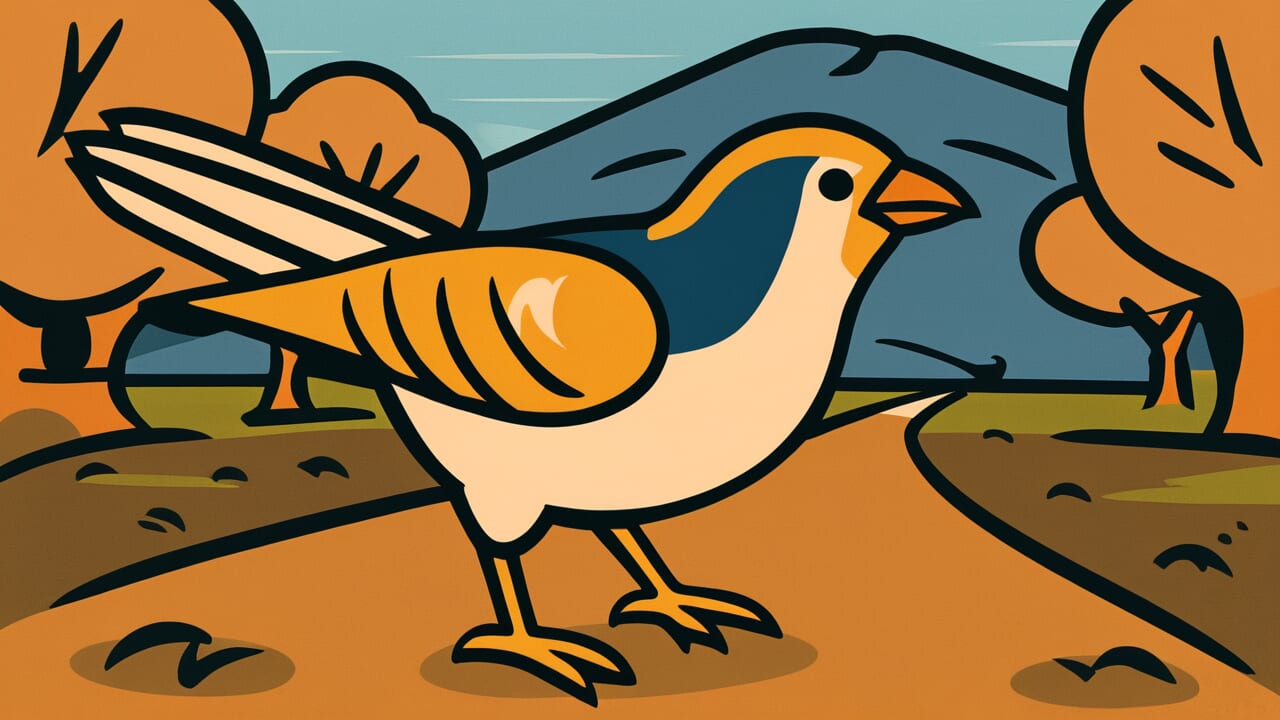How to Read “In a country without hawks, sparrows act as hawks”
たかのないくにではすずめがたかをする
Meaning of “In a country without hawks, sparrows act as hawks”
This proverb describes a situation where ordinary people must fill important roles when truly capable people are absent.
It refers to circumstances where people with average abilities must take on responsibilities that should ideally be handled by first-rate talent.
This expression is used when explaining situations where someone lacking qualifications must assume a position of responsibility because no suitable person is available.
The phrase carries two meanings. First, it objectively describes the reality of an organization facing a talent shortage.
Second, it offers a somewhat ironic evaluation of people handling roles beyond their actual capabilities.
Even today, this situation commonly appears in regional branch offices, small organizations, and fields with few specialists.
Ideally, excellent talent should fill these positions. But reality doesn’t always work that way, and this proverb frankly expresses that truth.
Origin and Etymology
No clear written records document the origin of this proverb. However, the structure of the phrase offers interesting insights.
Hawks have been Japan’s most revered birds of prey since ancient times. In samurai society, falconry symbolized the power of rulers.
Their sharp eyes and hunting abilities made hawks synonymous with exceptional people throughout history.
Sparrows, on the other hand, are common small birds found everywhere. They symbolize ordinariness and the common people.
This contrast likely emerged naturally within Japan’s class-based society.
In places without truly capable people, those who should play supporting roles must take center stage. This situation probably occurred frequently in small rural communities and organizations.
The expression “act as hawks” is particularly interesting. It doesn’t simply mean “replace hawks.”
It implies that sparrows must imitate hawks and behave like them. This concise phrase brilliantly captures situations where people must perform roles beyond their actual abilities.
The prevailing theory suggests this saying spread among common people during the Edo period. It expressed, with a touch of irony, the reality of personnel placement in organizations and groups.
Interesting Facts
The size difference between hawks and sparrows is truly enormous. Hawks measure about 50 to 60 centimeters in body length.
Sparrows are only about 14 centimeters. This overwhelming difference effectively visualizes the gap in abilities.
Japanese has many proverbs featuring hawks. “A hawk won’t pick grain even when starving” and “A capable hawk hides its claws” are examples.
All of these treat hawks as symbols of excellence. This deeply relates to falconry being an important samurai cultural practice.
Special respect for hawks remains preserved in these expressions.
Usage Examples
- Since the department manager transferred, an inexperienced section chief has been running things. It’s truly “In a country without hawks, sparrows act as hawks.”
- This branch keeps having talented people pulled to headquarters. The situation of “In a country without hawks, sparrows act as hawks” continues.
Universal Wisdom
The universal truth this proverb reveals is the “gap between ideal and reality” in human society.
No organization can always achieve optimal personnel placement. Talented people are limited and cannot reach every location.
People often imagine ideal situations. The right person in the right place, capable individuals handling important roles, organizations functioning smoothly.
But in the real world, things don’t go as planned. Uneven distribution of talent, timing issues, budget constraints, and various other factors interfere.
When that happens, organizations cannot wait for perfect candidates. They must make do with the people they have.
This situation reveals organizational weakness in one sense. But it also demonstrates the flexibility of human society.
Even without the best talent, organizations continue functioning. People with ordinary abilities sometimes exceed their usual performance when necessity demands it.
Things keep moving forward even when imperfect. That’s the reality of human society.
This proverb has been passed down through generations because people have repeatedly witnessed and experienced this reality.
Pursue ideals while accepting reality and moving forward. That wisdom is condensed in these few words.
When AI Hears This
Ecosystems follow an iron rule: “Empty seats always get filled.”
New Zealand had no mammalian predators. In an environment where flying to escape wasn’t necessary, the kiwi became a flightless bird occupying the niche of ground-dwelling small animals.
Ecology calls this phenomenon “competitive release.”
What’s fascinating is the speed and thoroughness of this phenomenon. In the Hawaiian Islands, over 50 species of honeycreepers diversified from a single ancestor.
Species emerged that sip flower nectar, eat insects, and crack seeds. They filled every role that different bird species would normally handle.
In other words, “absence of superiors” doesn’t just promote subordinates. It triggers a chain reaction where subordinates explosively diversify to fill every ecological gap.
The same pattern appears in human society. In regional cities abandoned by large corporations, small businesses rapidly expand their operations.
What’s noteworthy is that sparrows don’t “imitate” hawks. They substitute hawk functions using sparrow methods.
In biological evolution, “convergent evolution” occurs. Dolphins and sharks evolved from completely different ancestors yet developed similar body shapes.
When an environment demands certain functions, whoever fills that seat eventually performs similar roles. This demonstrates the inevitability of adaptation.
Lessons for Today
This proverb teaches modern people the importance of doing your best with current conditions rather than waiting for perfect circumstances.
At work and school, we tend to seek ideal situations. If only we had a better boss, more capable colleagues, a better environment.
But reality keeps moving while we wait for such ideals. What matters is finding what you can do in your current place with your current people.
This proverb also teaches humility. If you’re assigned an important role as a “sparrow,” that’s not a situation for overconfidence in your abilities.
Rather, it’s a learning opportunity. Acknowledge your limitations while making your best effort. That experience is what helps you grow.
For those leading organizations, this proverb highlights the importance of talent development.
You cannot remain “a country without hawks” forever. Develop the “sparrows” you have into “hawks.”
That’s the path to building sustainable organizations.



Comments